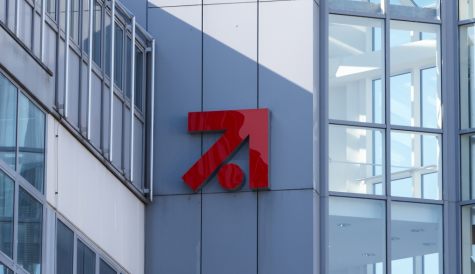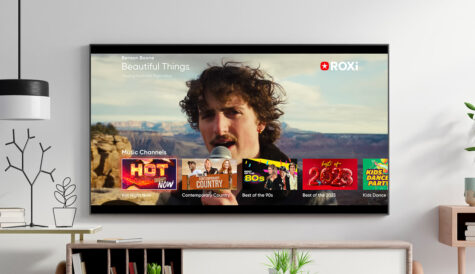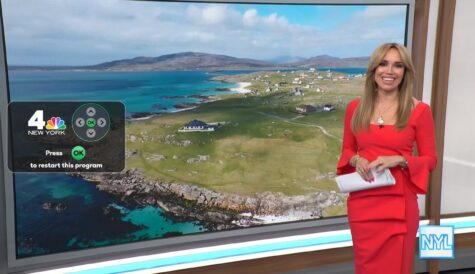Curation is still key and linear still has life, OTTtv attendees told
Curation will continue to be key to bringing viewers to audiovisual content and linear TV still has a lot of life left in it, attendees at the OTTtv World Summit in London heard yesterday.
Benjamin Rosenberg, senior distribution manager at the BBC, said that the UK broadcaster was continually trying to introduce new features. However, he said, “you can’t underestimate the value of that curatorial expertise.”
Speaking on a panel session at the event, Rosenberg said that “we don’t see massive changes in viewing” with linear plus catch-up TV capturing “most people”. However, he said, it was important to look to the future.“
Rosenberg said that the TV landscape was changing, but that broadcasters could adapt.
“In the past 12 months we have seen a doubling of the time spent consuming BBC iPlayer content,” he said. “At the beginning of last year, when we were setting out our position, DG Tony Hall said we had to ride multiple horses, and that is the position we are in today.”
Rosenberg highlighted the fact that while data could be useful for broadcasters and content providers, it had to be applied intelligently. He said that operators increasingly were looking at more sophisticated KPIs beyond unique users to look at 30- day or 60-day retention, which could be more valuable for them.
He said that the value of the content that broadcasters put out is “of massive importance” and creates “a need to engage with that content”. Providing information around that tied to metadata is important, he said. However, he added. There is a huge cohort of people now that understands how to “find stuff on their TV”.
Rosenberg said that the jury was still out on whether the trend among younger viewers to view shorter form content and engage with different ways may change as they grow older, but admitted that it is clear that “they don’t have a relationship with traditional TV” currently.
He said that the traditional EPG would nevertheless “not be going away anytime soon” and linear TV would be around for a while yet.
Rosenberg said that the BBC is currently testing new features such as restart and jukebox-type discovery. However, he said, the BBC required that a lot of people sign in before it adopts such services more widely.
He said the BBC currently had no plans to use sign-in to enforce licence fee payment. He said that the TV platform version of the iPlayer had no roadmap to introduce mandatory sign in. “It is not a personal device. It is in a shared space. To get to that stage is a longer road. We would need to support legacy devices. There are iPlayer apps on the earliest smart TVs and we can’t alienate those users. They still need to be able to access the content thy have paid for.”
Also speaking on the panel session at OTTtv, Albert Reynaud, business development chief, Android apps and games, EMEA at Google said that smarter recommendation algorithms and collaborative filtering would help deliver better content discovery and could help change the name of the game. “These are more and more complex and leverage more and more signals within user behaviour to drive this,” he said
Reynaud said that features around specific high profile shows and the development of social communities such as Twitch in eSports would also drive change in content discovery.
Reynaud nevertheless admitted that linear consumption still has a major role to play, and on demand platforms are increasingly “bringing a linear experience into their platforms”, he said, including things like autoplay. “These two worlds are kind of merging into one in some ways,” he said.
Reynaud said that Google has an ambition to give access to the most relevant information to users via Google play and search and other tools. However, it also wants to develop an ecosystem for content partners and distributors to access their customers. “There is an ambition to create tools for content partners to reach their audience. Android TV and Chromecast can enable content providers to do this.”
Speaking earlier, German video-on-demand service Maxdome’s CEO Marvin Lange said that parent company ProSiebenSat.1’s experience in producing and curating content over the years put it in good stead in the non-linear world, especially on web and mobile, where it had seen good uptake.
Lange said that Maxdome’s parent company is able to feed it some exclusive content with a “lot of exclusives secured through to 2019”
“That is why we are trying to mix in some originals,” he said.
He said that genres are curated. Usage spikes at 20:15, so it is important to know what to trail at that point. He said that
While Maxdome primarily targets a mainstream audience the platform is commissioning a series of 20-minute short shows to appeal to a younger audience. “We have some millennial focused content but we have to recognize that Netflix is strong in that segment. We have to consider whether we should target that group or look at a slightly older age group,” said Lange.




